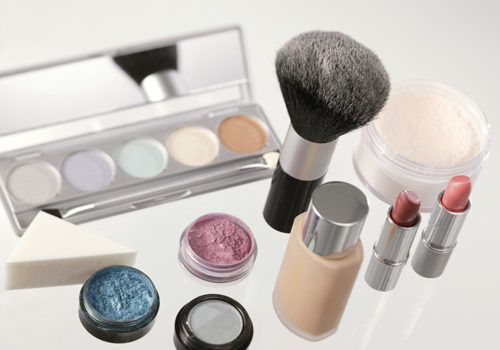Though it usually seems like something that takes place out there, in the world, sometimes the issue of sustainability can get right up in your face. Or perhaps "on your face" will be more appropriate, when major cosmetics firms and industry stakeholders meet up to discuss environmental issues surrounding their business. The Sustainable Cosmetics Summit, taking place in New York City from May 16-18 2013 at the InterContinental New York Barclay hotel, will examine how the environmental impact of cosmetic and personal care products can be addressed through the use of greener ingredients, and by taking a look at consumer behavior.
This focus on ingredients and the consumer factor is a first for the Summit, which marks its 4th North American edition and has also seen Asia-Pacific, Latin America and Europe editions. “This is the first time we have made this a focus of any of our Sustainable Cosmetics Summit editions,” says Amarjit Sahota, president of Summit organizers Organic Monitor. Previous conferences have had sustainable packaging, sustainable sourcing, biodiversity, new technology and other topics as themes. Attendees will include manufacturers, ingredient and raw material suppliers, retailers and distributors, industry organizations and certification agencies, researchers and academics, investors and more.
With most cosmetic companies and ingredient suppliers focusing on raw materials and production, the environmental impact of the consumption phase of these products is often neglected. Therefore, the Summit will attempt to address the topic of how to encourage consumers to responsibly purchase, use and dispose of cosmetic products. Questions posed will include: “What are the motive and triggers for consumers to buy green cosmetics/sustainable products? How can they be encouraged to make more green purchasing decisions? What can brands/retailers do to engage consumers and make them more aware of their environmental impacts?” says Sahota.
The move toward green formulations will be the other focus, amid heightened consumer demand for natural and organic cosmetics and a dwindling supply of petrochemicals. Specific topics will include the growing use of plant and marine raw materials in cosmetics. Mibelle Biochemistry and IRB (Croda) will examine the use of stem cell technology to create plant-derived cosmetic ingredients. Marine algae will also be explored as an ingredient source. As a number of food ingredients have crossed over into cosmetic applications, Horst Rechelbacher (founder of Aveda and Intelligent Nutrients) will take a look at the issues faced when formulating with them.
The social dimension of cosmetics will also be discussed from a number of angles. Dr. Bronner’s Magic Soaps will explain how its fair trade sourcing projects have affected the lives of marginalized producers in Sri Lanka and Palestine, while Johnson & Johnson will highlight the challenges of dealing with complicated sustainability programs. Michelle Thew, CEO of Cruelty Free International will also be on hand to discuss alternatives to animal testing.
A CEO roundtable will also take place for the third year in a row, with heads of brands like Hugo Naturals and Weleda discussing market conditions and consumer expectations. An interactive workshop on green formulations will cap off the 3-day program, where Judi Beerling of Organic Monitor will review the technical issues with green alternatives to synthetic preservatives, emulsifiers, surfactants, emollients and other ingredients.
Published in WholeFoods Magazine, April 2013










